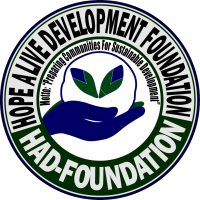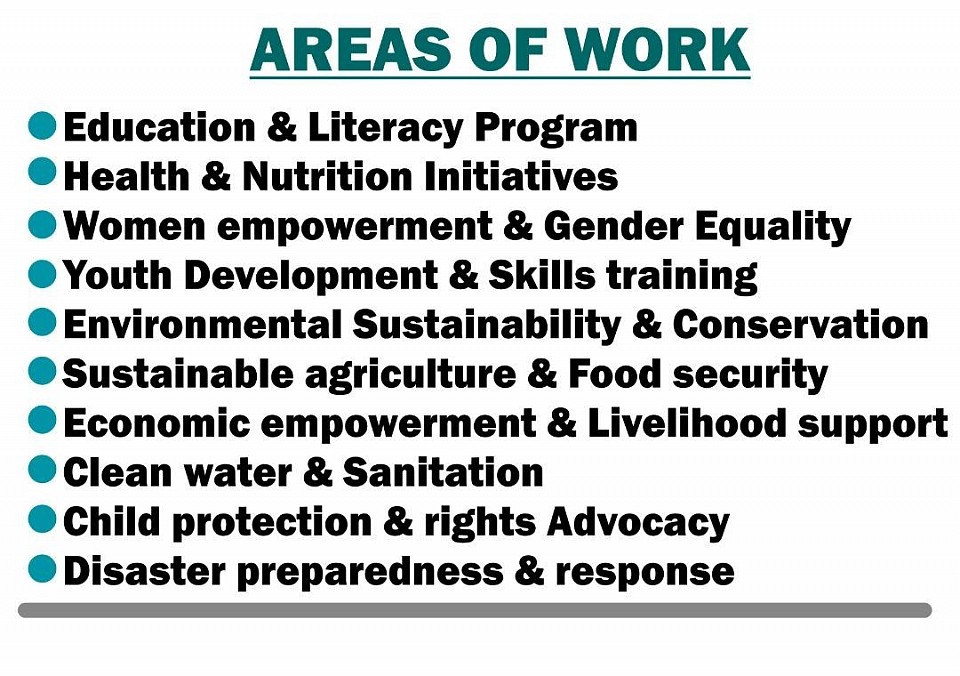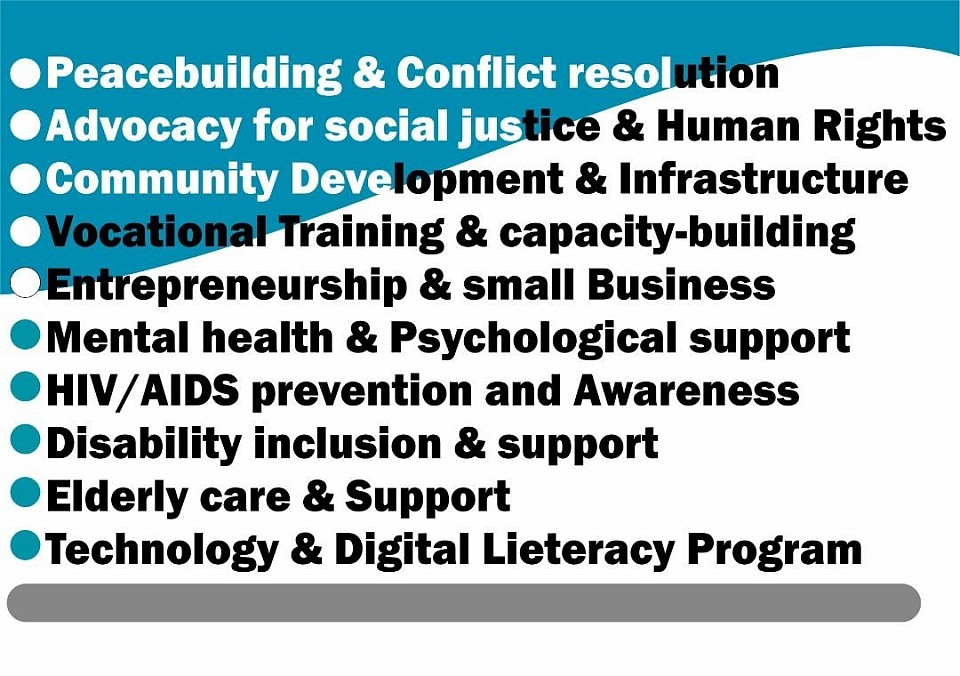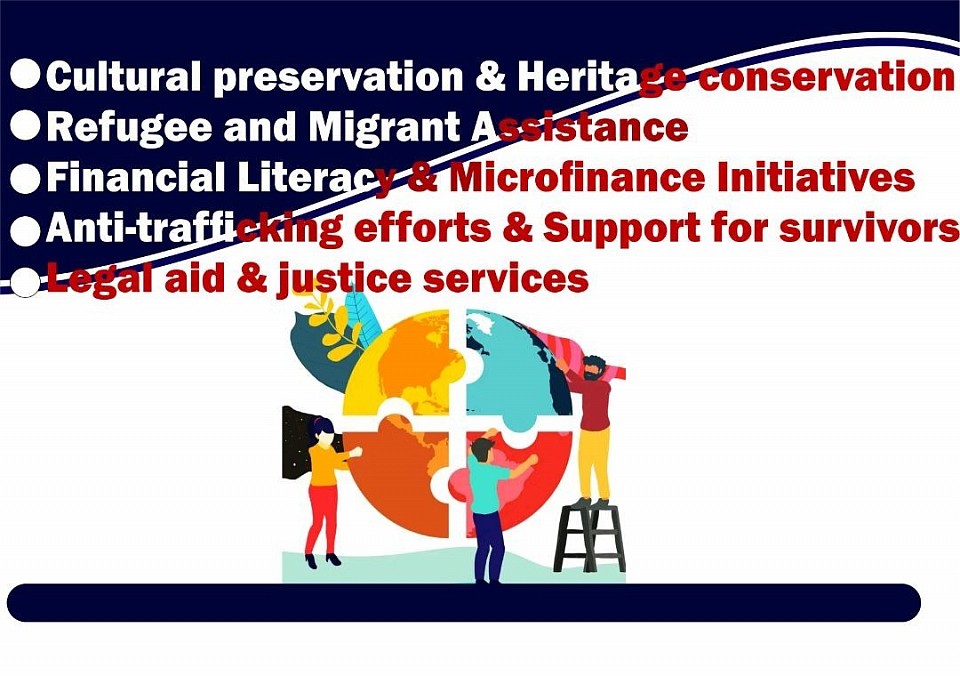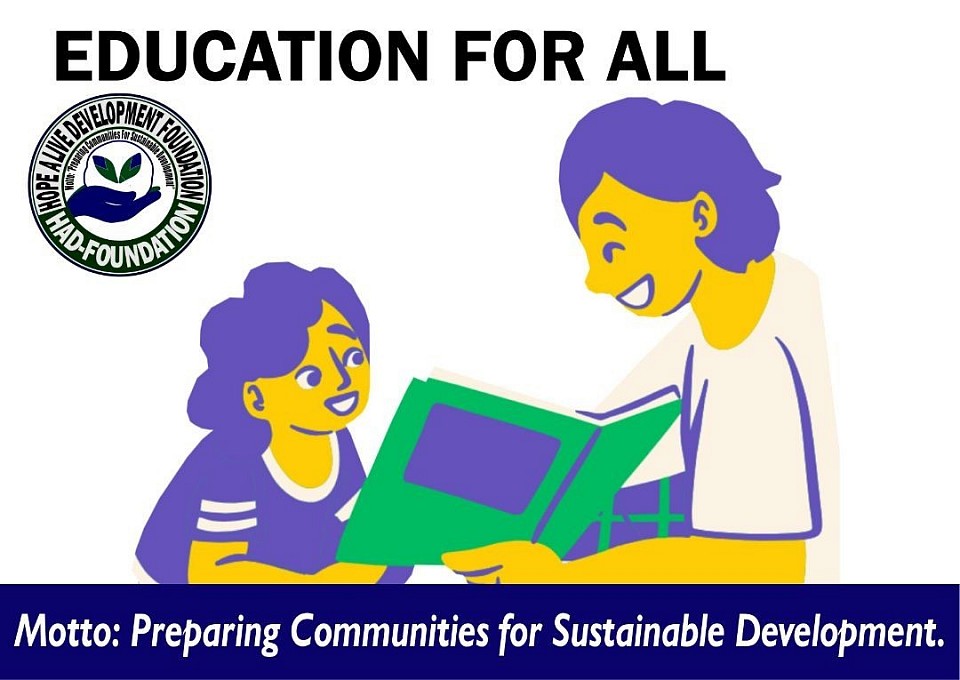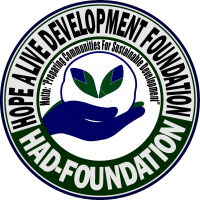Our Guidelines and Policies at Hope Alive Development Foundation
OUR MOTTO INTERPRETATION
The motto "Preparing Communities For Sustainable Development" conveys the core mission and purpose of your NGO. Here's an explanation of what our motto means:
1. Preparing: This indicates that our NGO is actively involved in planning, organizing, and implementing initiatives that aim to address the needs and challenges faced by communities.
2. Communities: Refers to the focus of our organization on working with and for communities, implying that the organization seeks to engage and collaborate with local populations to understand their needs and aspirations.
3. For Sustainable Development: This highlights that the ultimate goal of our NGO is to facilitate the development of communities in a way that is sustainable, meaning that the initiatives and interventions put in place are environmentally sound, socially inclusive, and economically viable in the long term.
Overall, our motto suggests that our NGO is dedicated to empowering communities by equipping them with the necessary tools, resources, and knowledge to foster sustainable development that meets their current needs without compromising the ability of future generations to meet their needs. It emphasizes a holistic and long-term approach to community development that builds resilience, promotes local ownership, and creates lasting positive impact.
Our Governance Policy and Procedures
Hope Alive Development Foundation Policy and procedure for governance :
Policy Title: Governance Policy
1. Purpose:
The purpose of this Governance Policy is to outline the guiding principles and procedures for the effective governance of Hope Alive Development Foundation to ensure transparency, accountability, and compliance with legal and ethical standards.
2. Board of Directors:
2.1 Composition: The Board of Directors of Hope Alive Development Foundation shall consist of a diverse group of individuals with expertise in various fields relevant to the organization's mission.
2.2 Roles and Responsibilities: The Board shall be responsible for setting the strategic direction, overseeing financial management, and ensuring compliance with laws and regulations.
2.3 Meetings: The Board shall meet at least quarterly to review progress, discuss key initiatives, and make strategic decisions.
2.4 Conflict of Interest: Board members shall disclose any conflicts of interest and abstain from voting on matters where they have a personal or financial interest.
3. Executive Director:
3.1 Appointment: The Executive Director of Hope Alive Development Foundation shall be appointed by the Board of Directors based on qualifications and experience relevant to the organization's mission.
3.2 Roles and Responsibilities: The Executive Director shall oversee daily operations, implement strategic plans, and maintain open communication with the Board.
3.3 Performance Evaluation: The Executive Director's performance shall be evaluated annually by the Board based on established goals and objectives.
4. Financial Management:
4.1 Budgeting: Hope Alive Development Foundation shall prepare an annual budget outlining planned income and expenses to ensure financial sustainability.
4.2 Reporting: Financial reports shall be provided to the Board on a quarterly basis, detailing income, expenses, and fund allocations.
4.3 Audits: An independent auditor shall conduct an annual financial audit to ensure compliance with accounting standards and best practices.
5. Code of Ethics:
5.1 Transparency: Hope Alive Development Foundation shall maintain open and honest communication with stakeholders, including donors, beneficiaries, and the public.
5.2 Integrity: Staff and Board members shall act with integrity and honesty in all interactions, upholding the organization's values and mission.
5.3 Compliance: All activities of the organization shall comply with relevant laws, regulations, and ethical standards.
6. Monitoring and Evaluation:
6.1 Impact Assessment: Hope Alive Development Foundation shall conduct regular monitoring and evaluation of its programs to assess impact and effectiveness.
6.2 Stakeholder Feedback: Feedback from beneficiaries, donors, and partners shall be collected and used to improve programs and operations.
6.3 Learning and Improvement: The organization shall continuously strive for learning and improvement based on evaluation findings and stakeholder feedback.
